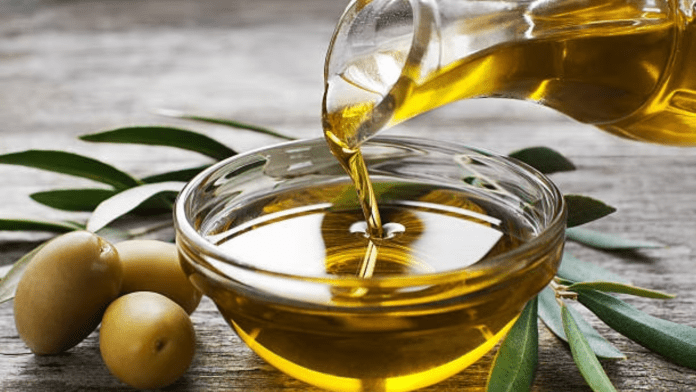Pregnancy is a transformative and joyous journey for many women, but it also comes with its fair share of challenges. From morning sickness and stretch marks to hormonal imbalances and skin changes, expectant mothers experience a myriad of physical and emotional changes during this period. During pregnancy, maintaining a healthy lifestyle is crucial not only for the mother’s well-being but also for the development of the growing fetus. One natural remedy that has been gaining popularity among pregnant women is olive oil. Renowned for its numerous health benefits, olive oil is a versatile product that can work wonders during pregnancy. In this article, we will explore the various ways in which olive oil can support expectant mothers’ health, from alleviating morning sickness to promoting glowing skin.
Understanding Olive Oil: Composition and Health Benefits
Olive oil is derived from the fruit of the olive tree (Olea europaea) and is a staple of Mediterranean cuisine. It contains various essential nutrients, including monounsaturated fats, antioxidants (such as vitamin E and polyphenols), and other bioactive compounds. These components have been associated with several health benefits, such as improved heart health, reduced inflammation, and enhanced skin health. Additionally, the high oleic acid content in olive oil contributes to its stability, making it suitable for cooking and culinary applications.
Olive Oil for Morning Sickness Relief:
Morning sickness, characterized by nausea and vomiting during the early stages of pregnancy, affects many expectant mothers. While the exact cause remains unclear, hormonal fluctuations and increased sensitivity to certain odors are thought to be contributing factors. Olive oil has been found to have mild anti-inflammatory properties and may help soothe the gastrointestinal tract, potentially alleviating symptoms of morning sickness. Mixing a teaspoon of extra virgin olive oil with a squeeze of lemon in warm water can create a soothing drink that might ease nausea and improve overall digestion.
Promoting Digestive Health with Olive Oil:
Constipation is a common issue during pregnancy due to hormonal changes and pressure on the digestive system from the growing uterus. Olive oil acts as a natural lubricant for the intestines and can help soften stools, easing bowel movements. Incorporating olive oil into salads, drizzling it over steamed vegetables, or using it as a cooking medium can support a healthy digestive system during pregnancy.
Managing Weight and Cholesterol Levels:
Weight management is a crucial aspect of a healthy pregnancy. Excessive weight gain during pregnancy can lead to complications and increase the risk of gestational diabetes and high blood pressure. The monounsaturated fats in olive oil have been linked to improved satiety and can help curb unhealthy food cravings, potentially contributing to better weight management during pregnancy. Additionally, studies suggest that incorporating olive oil into the diet may help regulate cholesterol levels, promoting overall heart health for both the mother and baby.
Olive Oil for Healthy Fetal Development:
A well-balanced diet plays a vital role in supporting the healthy development of the fetus. Olive oil is rich in essential fatty acids, particularly omega-3 and omega-6 fatty acids, which are crucial for the development of the baby’s brain, eyes, and nervous system. These fatty acids are transferred from the mother to the baby during pregnancy and breastfeeding, making it essential for expectant mothers to consume adequate amounts of healthy fats, including olive oil, as part of their diet.
Olive Oil as a Skincare Aid:
Pregnancy can cause significant changes in the skin, ranging from dryness and sensitivity to the appearance of stretch marks. Olive oil has been used for centuries as a natural skincare remedy due to its moisturizing and antioxidant properties. Applying a few drops of extra virgin olive oil to dry and itchy areas can provide relief and help maintain skin elasticity, potentially reducing the appearance of stretch marks. However, it’s essential to conduct a patch test before applying olive oil to a larger area to ensure there are no allergic reactions.
Preventing and Reducing Stretch Marks:
Stretch marks, caused by the stretching of the skin during pregnancy, are a common concern for expectant mothers. While genetics and skin type play a significant role in their formation, keeping the skin moisturized and supple can help prevent their occurrence or reduce their severity. The nourishing properties of olive oil can assist in improving skin elasticity and hydration, making it an excellent addition to a pregnant woman’s skincare routine.
Soothing Swollen Feet with Olive Oil:
During pregnancy, many women experience swelling in their feet and ankles due to increased fluid retention and reduced circulation. Massaging the feet with warm olive oil can help reduce inflammation and promote relaxation. Olive oil’s moisturizing properties can also keep the skin on the feet soft and prevent dryness or cracks, which are common issues during pregnancy.
The Importance of Choosing High-Quality Olive Oil:
When incorporating olive oil into a pregnancy diet or skincare routine, it’s essential to opt for high-quality, extra virgin olive oil. This type of olive oil is minimally processed, ensuring that its natural health-promoting properties are preserved. Moreover, extra virgin olive oil is free from harmful additives or preservatives, making it safe for both the mother and the developing baby.
Final Thoughts:
Pregnancy is a unique and transformative phase in a woman’s life, and it comes with its own set of challenges and concerns. From morning sickness to changes in the skin, expectant mothers often seek safe and natural remedies to support their well-being and the healthy development of their babies. Olive oil, with its numerous health benefits, can be an excellent addition to a pregnancy regimen. From providing relief from morning sickness to promoting glowing skin and aiding in healthy fetal development, olive oil offers a range of potential benefits. However, it’s essential to consult with a healthcare professional before making any significant changes to the diet or skincare routine during pregnancy to ensure the safety and well-being of both the mother and the baby.





